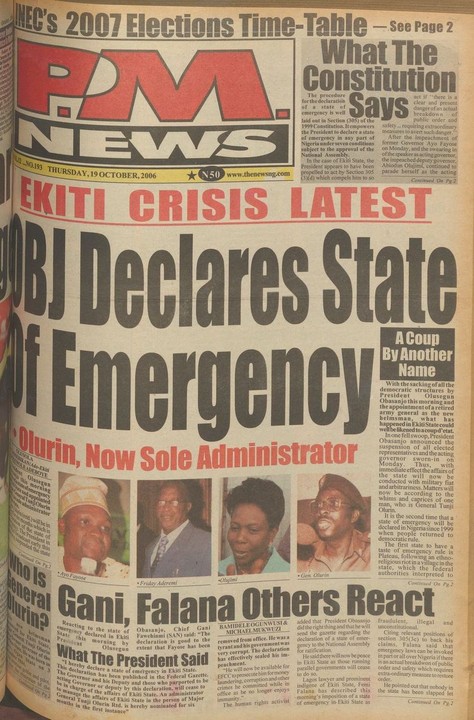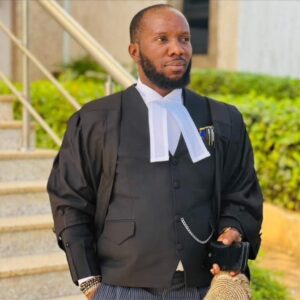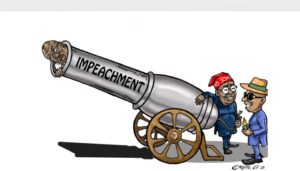State of Emergency.
The emergency powers granted the president and Commander-in-Chief of the Armed Forces of the Federal Republic of Nigeria under Section 305 of the 1999 Constitution of the Federal Republic of Nigeria (as amended) and under the Emergency Powers Act 1961 does not enable or vest him with the power to remove a governor in whose state a state of emergency is declared.

Under the present constitutional regime, an elected state governor can only cease to hold office by impeachment, resignation, permanent incapacitation, death or by expiration of tenure. Any attempt to remove an elected state governor under the guise of a declaration of the so-called “full state of emergency” will be unconstitutional. Though such action is supported by the precedent set in Plateau State during the Olusegun Obasanjo dispensation, it remains an illegality, and we all know Obasanjo, with his military background, had an unenviable record of illegalities and disdain for the democratic ethos and the Rule of Law during his sadistic and despotic days in power.
Although the Supreme Court had declined to make a definite pronouncement on this vex issue in the case of Plateau State of Nigeria and Another v Attorney General of the Federation and Another (SC 113/2004) [2006] NGSC 7 (19 January 2006), on technical grounds (the academic nature of the res or subject matter of that case), the spirit and letter of the law does not envisage the removal of a governor during the declaration or currency of a state of emergency.
One practical basis for this submission is that there are executive functions under the Constitution that are gubernatorial in nature, exclusive to and only domiciled in the governor, as they are exclusively exercisable by the governor. Such functions cannot be delegated, not even to the deputy governor.
Examples of such powers include:
- assent to Bills passed by the State House of Assembly under Section 100 CFRN
- The power of the prerogative of mercy under Section 212
- The appointment of members of the State Executive Council, amongst others.
Only a governor or an Acting governor can exercise those functions, and the circumstances under which an Acting governor emerges do not include when a state of emergency is declared.
The phrase ‘Sole Administrator’ is a constitutional aberration which cannot be found, not even impliedly, in any of the 320 sections of the 1999 Constitution. It is a military terminology which cannot be imported into our current democratic dispensation by any stretch of interpretation. State of emergency is a state of emergency and not a state of the military.
All that happens in a State of Emergency is that certain overriding measures are taken to restore calm, public order and protect lives and properties. It allows for limited violations of individual liberties, such as freedom of movement.





